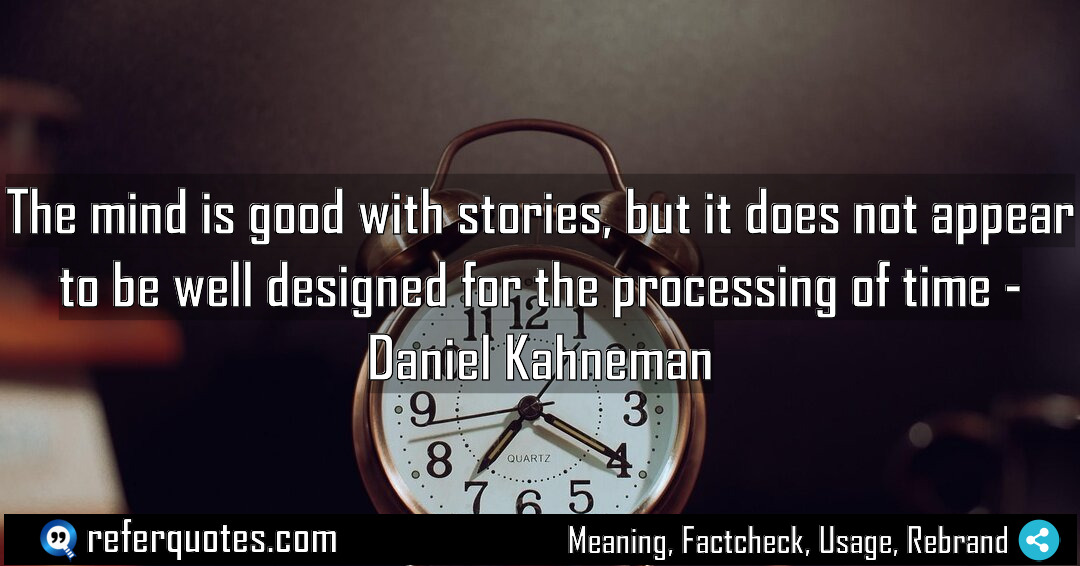You know, “The mind is good with stories” is such a powerful opener from Kahneman. It perfectly captures why we remember narratives so much better than raw data or the actual passage of time. This is the core of why our memories and decisions can feel so unreliable.
Share Image Quote:Table of Contents
Meaning
Our brains are wired for narrative, not for accurately logging the duration or sequence of events. We remember the *story* of an experience, not the clock-time.
Explanation
Let me break this down. Think about the last truly awful meeting you sat through. What do you remember? You probably remember a few key, painful moments—that one person droning on, the frustrating circular argument. Your brain stitches those peak moments and the ending into a coherent, negative story. But you have almost no real sense of whether it was 45 minutes or an hour and fifteen. The *plot* is crystal clear; the *timeline* is fuzzy. That’s Kahneman’s point. We don’t have a perfect internal stopwatch. We have an internal screenwriter and editor who are constantly crafting a highlight reel, and that’s what we base our judgments on, for better or worse.
Quote Summary
| Context | Attributes |
|---|---|
| Original Language | English (3668) |
| Category | Wisdom (385) |
| Topics | memory (50), story (19), time (59) |
| Literary Style | analytical (121) |
| Emotion / Mood | reflective (382) |
| Overall Quote Score | 81 (258) |
Origin & Factcheck
This insight comes straight from Kahneman’s 2011 masterpiece, “Thinking, Fast and Slow.” It’s a key part of his work on what he called the “experiencing self” versus the “remembering self,” and it’s often mistakenly attributed to other behavioral economists or psychologists. But this is pure Kahneman.
Attribution Summary
| Context | Attributes |
|---|---|
| Author | Daniel Kahneman (54) |
| Source Type | Book (4032) |
| Source/Book Name | Thinking, Fast and Slow (54) |
| Origin Timeperiod | 21st Century (1892) |
| Original Language | English (3668) |
| Authenticity | Verified (4032) |
Author Bio
Dr Daniel Kahneman transformed how we think about thinking. Trained in Israel and at UC Berkeley, he built a career spanning Hebrew University, UBC, UC Berkeley, and Princeton. His partnership with Amos Tversky produced prospect theory and the heuristics-and-biases program, culminating in the Nobel Prize in Economic Sciences. He engaged broad audiences through bestselling books and practical frameworks for better decisions. He continued writing and advising late into life, leaving ideas that shape economics, policy, medicine, and management. If you want to dive deeper, start with the Dr Daniel Kahneman book list and explore his enduring insights.
| Official Website
Where is this quotation located?
| Quotation | The mind is good with stories, but it does not appear to be well designed for the processing of time |
| Book Details | Publication Year: 2011; ISBN: 9780374275631; Latest Edition: Farrar, Straus and Giroux, 2013; Number of pages: 499. |
| Where is it? | Part IV: Choices, Chapter 36: Life as a Story, Approximate page 390 (2013 edition) |
